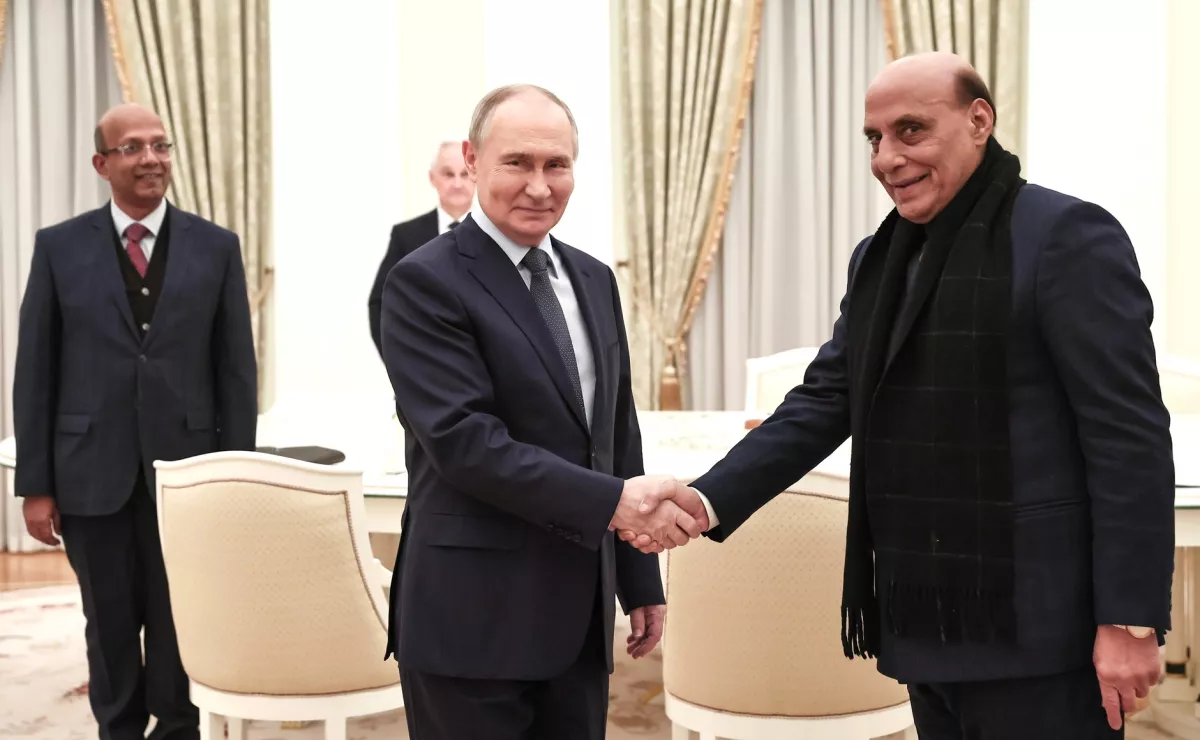How India-Russia ties endure despite Western pressure Political, military, economic pillars
Russia has more friends than Western analysts often admit, even three years into the Russo-Ukrainian War. While attention has focused on Russia’s partnership with Iran, North Korea’s role in Ukraine, and China’s materiel support, another key relationship is underdiscussed — India.
Seemingly having gained attention only in recent weeks following Washington's penalizing tariffs imposed on India for purchasing sanctioned Russian oil, the Russian-Indian relationship is older and deeper than Moscow’s ties with its other partners.
It is often overlooked because it doesn’t rest on shared hostility toward the West. An article published on War on the Rocks argues this view is flawed, as the partnership has proven resistant to outside pressure, evident in developments on sanctions and tariffs.
This raises the question: what drives Russian-Indian ties, and how have they evolved? Contrary to expectations, war has strained some areas while improving others. The direct impact of the conflict is uneven, which is displayed when analysing the bilateral ties through the dimensions of political, military and economic relations.
India's resistance to Western pressure
India has refused to adopt the Western position on the war, instead issuing balanced calls to end hostilities. Both countries stress multipolarity and avoiding dependence on any single partner.
According to the article's analysis, India does not see close ties with Russia and the US as mutually exclusive, aiming to keep both. As Western unity on Russia waned, India re-engaged Moscow across several domains.
Despite claims that Sino-Russian alignment strains Moscow-New Delhi relations, the article argues India under Narendra Modi avoids the issue and takes a “wait-and-see” approach to China-Russia coordination.
Russia views India’s US outreach as “unfortunate but inevitable,” while emphasizing sovereignty and civilizational autonomy to show that ties need not be zero-sum.
"Russia has three overall political objectives in the foreign policy domain vis-à-vis India: to maintain its existing relationship that has endured since the early Cold War, to ensure that India does not overly align itself with the West, and to encourage India as a major global player — a position that Russia, which views itself as a protector of and advocate for non-Western countries, is seemingly happy to see," the publication establishes.
India, for its part, intends to maintain an independent relationship with Russia regardless of Western preferences.
Weak military denominator
After a strong growth period from 2005–2019, military ties have stagnated. Indian optimism began to fall in the mid-2010s over delays and cost overruns in projects like the Vikramaditya carrier modernization and a joint fifth-generation fighter program. Concerns over quality of Russian platforms deepened this shift. No new arms deals have been signed since 2021, and none for licensed production since 2019.
Post-2022, India cancelled or suspended several Russian defence purchases, citing supply chain and payment issues tied to Russian sanctions, as well as domestic production goals. The only major deal under discussion is for Voronezh-DM long-range radar systems.
Nevertheless, joint production remains steady, and India continues to manufacture Russian-designed weapons under license.

Military diplomacy stalled during COVID-19 and after the outbreak of the Ukraine war. On one hand, this was partly because the Russian military was under significant strain and unable to allocate resources for exercises and other joint activities, while on the other because Indian leaders scaled back engagements after Russia became a pariah in the international community following the events of February 24, 2022. However, high-level visits — such as India’s defence minister visiting Russia in December 2024 — and new agreements suggest reduced isolation for Moscow.
Still, the article notes that given declining defence-industrial cooperation, a return to earlier growth in military ties is unlikely. The likeliest trend: stability with little growth.
Booming economic ties
Economic relations have strengthened the most. Bilateral trade, fueled by India’s energy demand, has grown over 30% in the past year representing one of the world’s fastest-growing trade partnerships. Russia, cut off from Western markets, supplies oil, gas, and coal to India at discounted rates.
Trade diversification is also accelerating, including fertilizers, seed oils, and pharmaceuticals. In addition, both nations have renewed collaboration in strategic sectors such as aerospace and information technology. These industries are highly sensitive due to their defence-related applications, and cooperation here underscores a deeper commitment to maintaining close ties.
By Nazrin Sadigova








